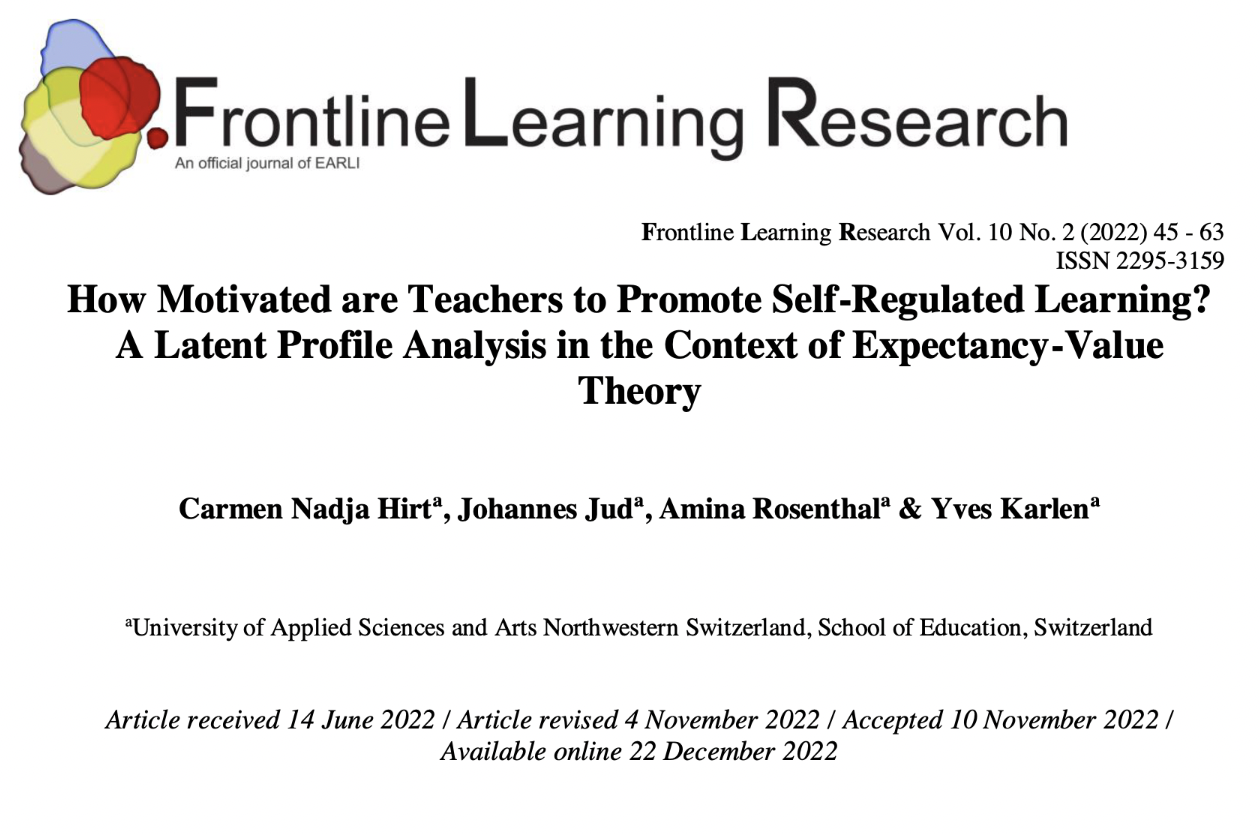Frontline Learning Research

Social help seeking (SHS) is an important strategy for successful self-regulated learning at all school levels. The aim of this longitudinal study is threefold: to ascertain the existence of different types of SHS strategies in various task stages of creating an individual academic paper, examine the extent to which these types of SHS strategies change in the course of that challenging long-term task and analyse the extent to which these types are relevant to academic achievement. This examination extends previous studies by adopting a task-specific, person-centred development perspective on SHS outside regular classroom instruction. In particular, we explore SHS types in the context of a real, long-term task, whereby aspects neglected in previous studies (need for help, help sources based on specific issue areas) are used for type creation and test for differences in academic achievement. Three online questionnaires were completed by 603 upper secondary school-level students (62.9% female) with a mean age of 17.3 (SD = .71) within one school year. Latent class analyses, latent transition analyses (LTA) and nonparametric procedures (Kruskal-Wallis H test, post hoc Dunn-Bonferroni test) were performed. Different SHS types were identified (independents, factual supervisor-focused, factual supervisor-focused and motivational family-focused, motivational family-focused, and factual and motivational family-focused) and found to vary over different task stages. Moreover, LTA indicated a considerable change between the SHS types over time. Nevertheless, no significant differences in achievement emerged between the types per task stage, thus reflecting the adage, 'There is more than one way of doing it'.
